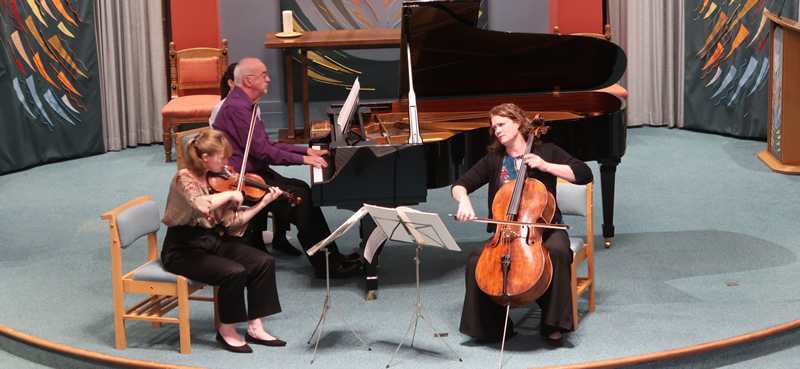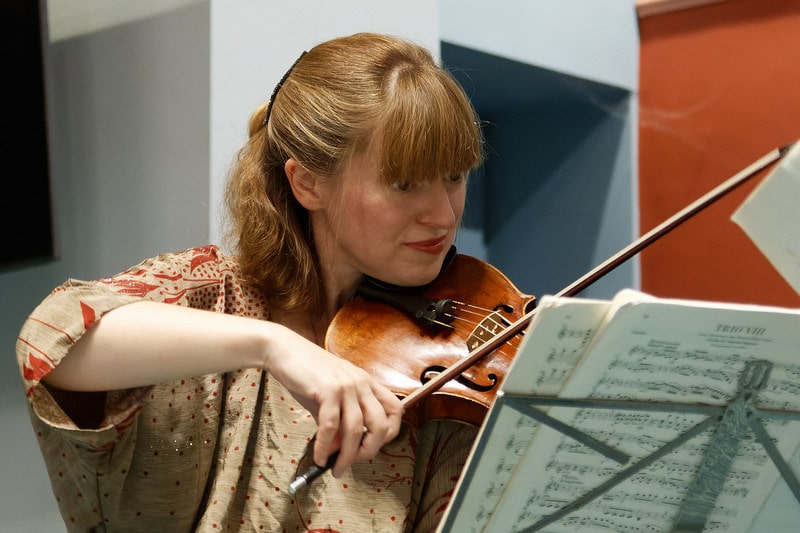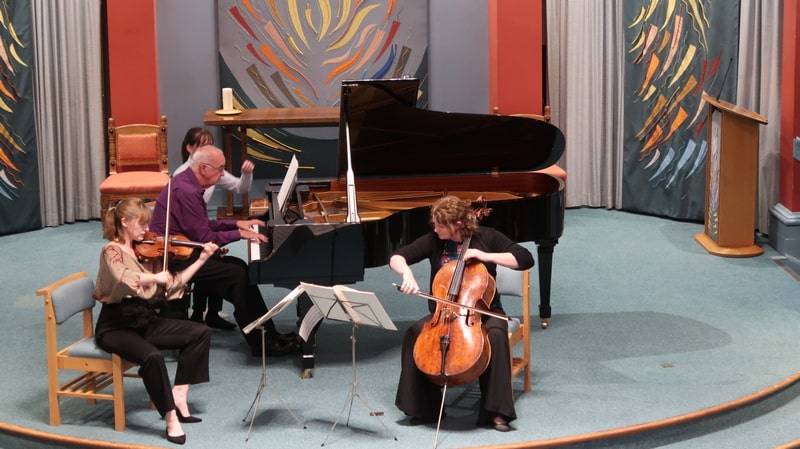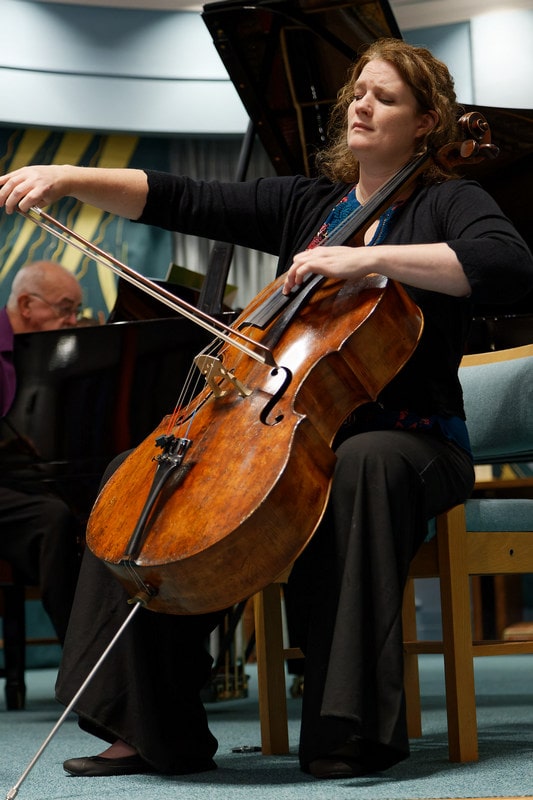Concert Review
The Roscoe Piano Trio – 18th September 2023

For the first concert of Penrith Music Club’s season, the Roscoe Piano Trio took the audience on an enthralling musical journey back through time on Monday night.
The opening Phantasie by Frank Bridge was a clear favourite with the ensemble. Bridge is more noted for being Benjamin Britten’s teacher, and the source of one of his pupil’s more approachable works than for any of his own compositions. The Phantasie is a muscularly post-romantic work of rich harmonic invention akin to Delius, with occasional touches of Rachmaninov. The piano part being largely content to provide the accompaniment, Bridge uses it prominently to link the sections together. This pleasingly unfamiliar work, to myself and, I suspect, most of the audience allowed the violin and cello to shine in the hands of Fenella Humphreys and Jessica Burroughs respectively.
Bridge, as name and style may be unfamiliar but Mendelssohn’s First Trio was instantly recognisable. This piece shared a dark and dramatic opening with Frank Bridge’s Phantasie. While the strings still passed the melodic lines between them, the piano part is more overtly virtuosic and prominent. This was a delight from start to finish, the scherzo notably articulated by Martin Roscoe.
And so to the Beethoven’s Archduke Trio, though I will take a moment to mention that the large audience were for the first time for some years able to indulge in a proper interval with drinks and shortbread, for which many thanks to the team that provided this.
To return to Beethoven, this is a piece which starts rather understatedly, again the piano naturally being the dominant force, though Martin Roscoe’s sense of style and phrasing allowed the violin and cello to show off when allowed. The pizzicato section of the first movement and the slitherey, almost sinister, theme of the trio in the second movement were outstanding passages for all the players. Martin Roscoe introduced the Andante chorale theme with poise; there are parts of this movement where time is almost suspended, in spite of the successively complex variations.
And then we were plunged into the Finale. Martin had already suggested that the slow movement hinted at Schumann and Brahms. I would suggest that much of this work looks forward to the greater chromaticism of these two inheritors of Beethoven. What is also striking is the spareness of some of the writing.
This was a most enjoyable opening treat to Penrith Music Club’s season.
Charles Ritchie


